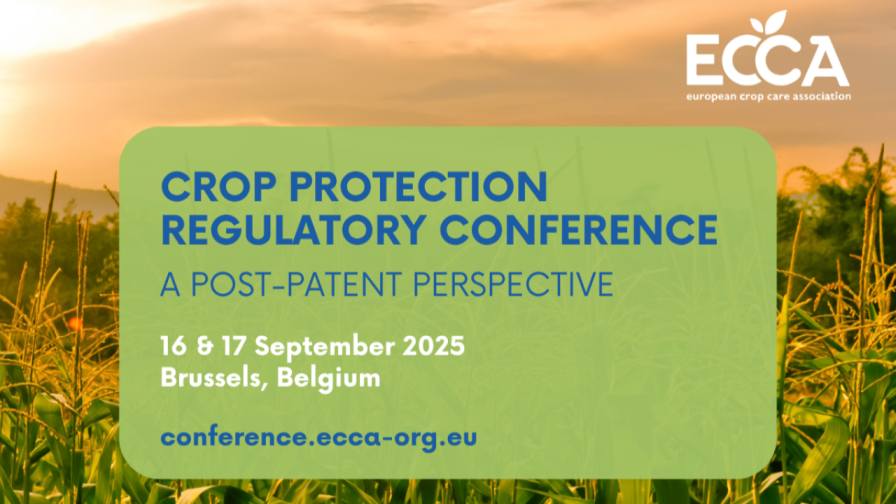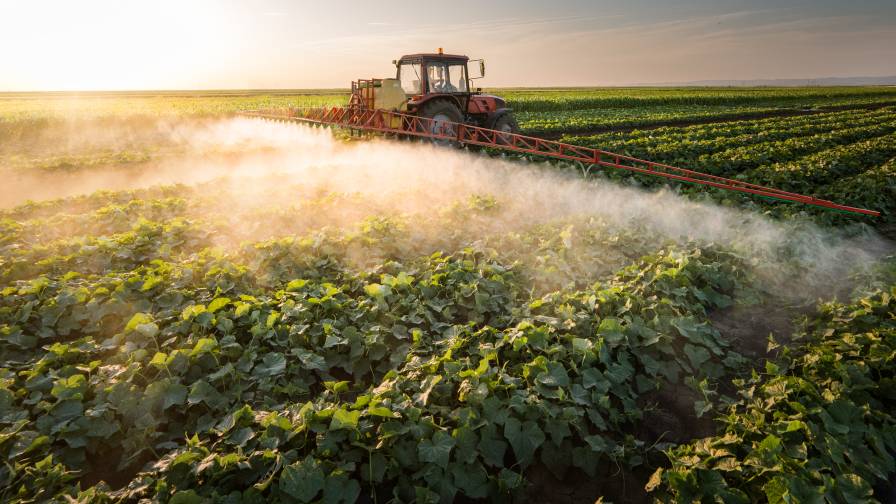JMPS Update: Equivalence Continues to be Cumbersome, Slow
Given that today’s FAO/QUEM Joint Meeting on Pesticide Specifications (JMPS) are partially secret and now tied to a single manufacturer, any second manufacturer that wishes to assess whether their product meets the international standard for quality must submit its product’s dossier to the JMPS for an evaluation of “equivalence” to the specification developed by the first manufacturer. This creates a serious bottleneck due to the time it takes to evaluate each submission and the limited human and economic resources of the JMPS. This bottleneck is not a trivial problem since each active ingredient can have dozens of generic manufacturers around the world. Therefore, regulators are likely to have to review or assess the quality of hundreds of generic pesticides per year. Such a herculean task is not something the JMPS was designed or equipped to do. The JMPS cannot serve as the quality control authority or conformity assessment provider for the world since its response time would be in the order of years or decades. To get an idea of the bottleneck that the new procedure creates one only has to look at the rate at which new specifications are being defined per year (see chart). At the current annual rate, it would take approximately 60 years for the JMPS just to replace all old specifications with new ones. To this significant workload we must also add the conformity assessment work of generic products and the supposed periodic 10-year review of specifications by the JMPS.
The current workload of the JMPS has no slack in available capacity, even though less than ten 10 new specifications or conformity assessments are reviewed per year. Marginal increases in conformity assessments overwhelm the JMPS panel. Recent requests by generic pesticide companies for the inclusion of product evaluations in the schedule of the JMPS panel have been rejected due to the inability of handling a moderately increased yearly workload.
Vida de colheita, the lobby of the large corporations, is very aware of this insurmountable bottleneck at the JMPS, and yet still recommends that all registration requests by equivalence in countries where a reference profile is not available be sent to the JMPS for evaluation.
This position intends to assign the role of “registration authority of the world” to the JMPS panel, well aware that such a role paralyzes generic registrations in those countries and consequently reduces competition in the market.
Violation of WTO disciplines
The FAO/WHO new procedure, as currently implemented, may induce governments to directly or indirectly rely on such procedure in developing their technical regulations, and thus, to violate multilateral rules applicable in the context of the WTO. The Agreement on Technical Barriers to Trade (TBT Agreement) and the Agreement on Sanitary and Phytosanitary Measures (SPS Agreement) of the WTO, seek to prevent the establishment of non-tariff barriers via standards, technical regulations and other measures. Under these agreements, WTO member countries are bound to comply with a number of principles and ensure that the procedures they apply do not create unjustified trade barriers. Although FAO and WHO as international organizations are not subject to WTO disciplines, they have similar member countries as WTO and must contribute in a coherent manner to the realization of the principles enshrined in the WTO system, namely transparency and impartiality.
The “new procedure” FAO/WHO specifications fail to meet the WTO disciplines in this area. Article 2.2 of the TBT Agreement provides that members shall ensure that technical regulations are not prepared, adopted or applied with a view to or with the effect of creating unnecessary obstacles to international trade. For this purpose, technical regulations shall not be more trade-restrictive than necessary to fulfill a legitimate objective, taking account of the risks non-fulfillment would create.
The assessment of non-relevant impurities under the FAO/WHO “new procedure” on the basis of secret information puts an unnecessary burden on applicants seeking to demonstrate compliance with the FAO/WHO specification. Such impurities result from discretional decisions made by pesticide producers in the manufacturing process, namely regarding the raw materials, solvents and catalysts used. The Committee on Technical Barriers to Trade, which makes decisions on how the TBT Agreement should operate, places a high importance on transparency. In their decisions regarding transparency published on May, 23, 2002 they state that in providing the essential information on standards, the transparency procedures should at a minimum include: “the prompt publication of a standard upon adoption”.
In accordance with the quoted Article 2.2 of the TBT Agreement, the legitimate objectives that can be taken into account in conformity assessments include national security requirements, the prevention of deceptive practices, protection of human health or safety, animal or plant life or health, or the environment. Further, in accordance with Article 2 of the SPS Agreement, members have the right to take sanitary and phytosanitary measures necessary for the protection of human, animal or plant life or health, provided that such measures are not inconsistent with the provisions of this agreement and shall ensure that any sanitary or phytosanitary measure is applied only to the extent necessary to protect human, animal or plant life or health and that it is based on scientific principles. The inclusion of undisclosed non-relevant impurities in the new procedure FAO/WHO specifications clearly fails this requirement.
The evaluation of non-relevant impurities, as implemented under the FAO/WHO new procedure, is not necessary to fulfill a legitimate objective under the TBT or SPS agreements. As elaborated by the WTO jurisprudence, necessary is a concept close to indispensable; the more vital or important the common interests or values protected by a measure are, the easier it would be to accept as necessary a measure designed as an enforcement instrument. The assessment of non-relevant impurities, as implemented by the FAO/WHO new procedure is unlikely to successfully pass the necessity test as elaborated under WTO law.
Even if, hypothetically, such an assessment could be considered necessary in the light of WTO law, the procedures, as applied, would fail to comply with Article 5.2.1 of the TBT Agreement. In accordance with this provision, when implementing conformity assessment procedures, members shall ensure that they are undertaken and completed as expeditiously as possible and in a no less favorable order for products originating in the territories of other members than for like domestic products. Similarly, Article 1(a), Annex C of the SPS agreement requires members to ensure, with respect to any procedure to check and ensure the fulfillment of sanitary or phytosanitary measures that such procedures are undertaken and completed without undue delay and in no less favorable manner for imported products than for like domestic products. As noted above in this document, the conformity assessment implemented by the new procedure leads to unacceptable delays that, in practice, amount to an exclusion of competitors from the market.
Further, the use of individual companies’ product profiles as the basis of applicable standards runs counter to the adoption of harmonized standards that are essential to facilitate trade and legitimate competition. Harmonization is a key target in both the TBT and the SPS Agreements. There are no fundamental technological problems that would impede the development of a fully transparent international quality standard for pesticides. It will be impossible to reach this target, however, if the JMPS continues to base its assessment on profiles that contain secret information for the quality of human pharmaceuticals. Human therapeutics are chemical substances that are intentionally ingested or injected into the human body, so exposure to the substance is guaranteed. Given the certainty of human exposure to pharmaceutical substances, WHO recommendations on quality and safety of such substances are obviously conservative recommendations with broad safety margins to ensure human health is not adversely affected. WHO issues such quality standards in the form of monographs, published in “The International Pharmacopoeia”. Work on “The International Pharmacopoeia” is carried out in collaboration with members of the WHO Expert Advisory Panel on the International Pharmacopoeia and Pharmaceutical Preparations. Pharmacopoeial standards are publicly-available compliance specifications and provide the means for an independent conformity assessment of the quality of a product at any time during its shelf-life.
WHO monographs are the pharmaceutical equivalents of pesticide specifications. However, they are much more practical to develop and use than new procedure FAO/WHO pesticide specifications since they are completely transparent and not tied to a single manufacturer. Pharmaceutical monographs consist of the minimum concentration of the active ingredient and a list of relevant impurities which should be accounted for, such as heavy metals or certain organic impurities, although specific tolerances for the concentration of such relevant impurities are usually not given. In addition, the methods for assessing adherence to a pharmaceutical specification are made publicly available in such monographs.
None of these characteristics are found in new procedure pesticide specifications. Drug monographs are developed by a very extensive list of experts and are based on solid scientific rationale. There is no reason why pesticide specifications cannot follow the same rationale and format as drug monographs, thereby making them relevant again as practical and useful international standards of quality.





